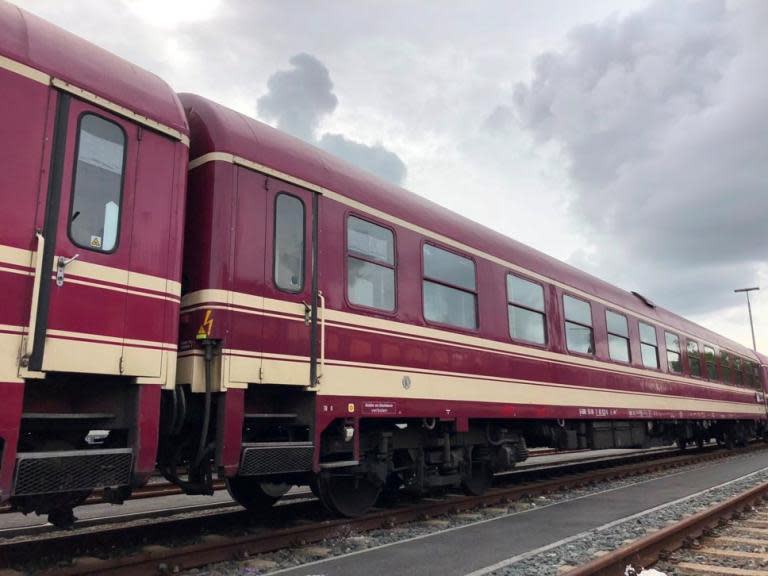Jazz Night Express: tickets go on sale for overnight jazz train from Amsterdam to Berlin
Night trains were a popular way to cross Europe in the golden age of rail travel, but in recent years competition from low-cost flights has seen many routes cut back.
Now a new service hopes to lure passengers back to the railways with restaurant cars, bar carriages and onboard performances by top jazz musicians by offering a more pleasurable way of travel.
The Jazz Night Express will run from Rotterdam and Amsterdam through to Berlin – with the first service planned for June.
With fares starting at €149, passengers will effectively be buying a ticket to a jazz festival on rails, with sleeping cars for accommodation – and two of Europe’s coolest cities at either end.
The organisers say the train will feature three stages, a dining car, a bistro, and several bars. Musicians booked for the first journey include Jesse van Ruller, Thomas Pol & Joost Patocka, Ntjam Rosie, Dorona Alberti, Oene van Geel and Mark Haanstra.
“The idea came about a year ago from the frustration that there are no night trains to or from The Netherlands at the moment,” organiser Chris Engelsman tells The Independent.
By day Engelsman works for the regional transport authority in Amsterdam; but his passion for night trains led him to examine how recent EU rules allowing “open access” operators could allow for a new kind of charter service.
The first return trip is planned for June 28-30, but depending on the success of the trial run, he hopes the service could eventually run weekly.
“We definitely intend to go again next year. And preferably more times… it all depends on the success of the first rides, but our long time ambition is to have a train every week,” he said.
Passengers will be able to reserve space in one of the three stages to ensure a seat, but will be able to freely access other parts of the train and catch other concerts where there is space.
As on most continental night trains, passengers can choose between a cheaper shared “couchette” cars with five beds and a shared washroom, or more comfortable but pricier “sleeper” cabins with just three beds and their own facilities.
The train itself uses refurbished sleeper carriages that were previously in service between Germany and the Netherlands. Chartering a train, it turns out, is also not too difficult.
“Since the liberalisation of the train travel market in Europe, it is possible for anyone to run their own train,” Engelsman says.
“Of course, this requires all manner of permits and licences, as well as payment for train track usage. Luckily, we do not have to take care of all of this, ourselves, because chartering a train and hiring certified transport companies, is relatively easy.
“We are working with Euro Express from Germany and they are organizing the exact timetables, train staff and track using permits.”
Tickets went on sale for the service on 20 January and can be booked on the company’s website. It departs Rotterdam Centraal at 19:15, picks up more passengers in Amsterdam Centraal at 20:30, and then after a night’s party (and maybe some sleep) arrives at Berlin Zoo station at 7:30 the next morning.
It will make the return journey back to the Netherlands the evening of the same day – leaving time for passengers doing both legs to do a spot of sightseeing. Fares can be booked in either or both directions.
In 2016, Germany’s national railway operator Deutsche Bahn closed all of its sleeper routes and France’s SNCF, shut down three – both citing poor patronage.
Since then, however, the Austrian state railways ÖBB have taken over a number of routes – and appear to be making a success of them, with plans for new trains and further expansion. Surviving routes for the more conventional sleeper trains include Munich to Rome and Cologne to Vienna.



